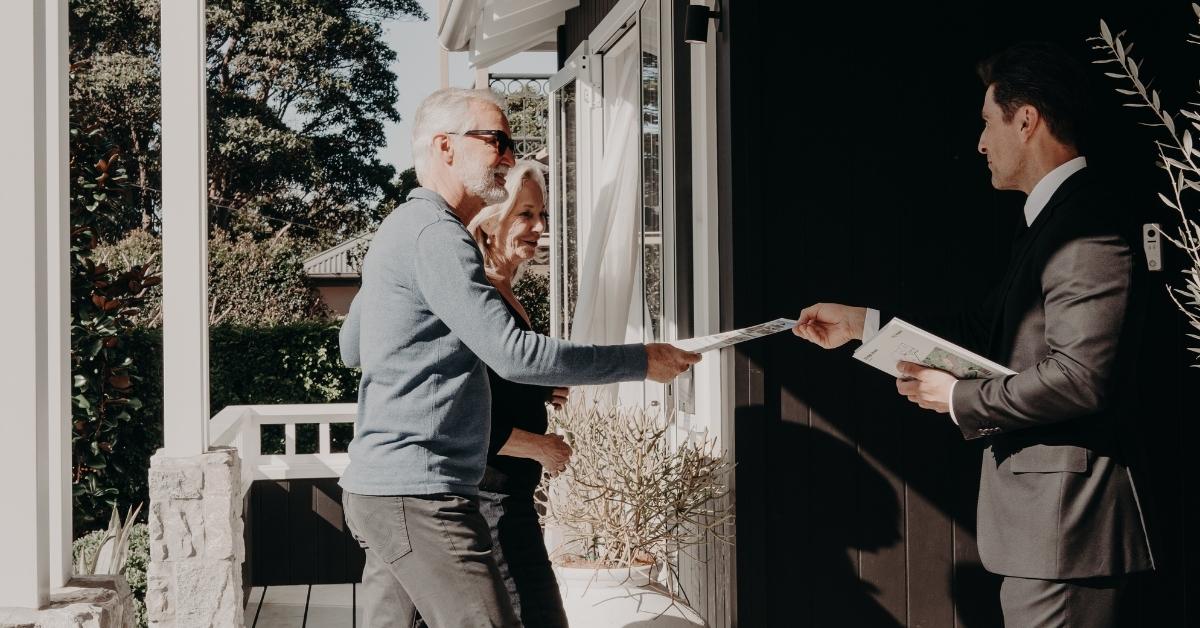Understanding the Selling Process
Proper Selling Process and Selling Property New Zealand Tips
When selling your property ensure you are aware of all the details of the selling process. LJ Hooker explains the regulations, guides you through every step, and helps you achieve a successful sale in the shortest possible time. For help and advice from the beginning to the end please contact us!
Before we start: there are 2 essential things you need if you want to sell your property.
- You have to have property to sell
- You have to have a platform to sell
But, there’s more to it than just cleaning up, doing some basic repairs and partnering with a real estate company.
So let’s get you started in the right direction to selling your house
1. Prepare Your Property, Make It Presentable
After you’ve decided to finally sell your house, make sure it’s presentable enough so that when you call the agent, they’ll see it as ready for presentation to potential customers.
Other things to do: De-clutter your house, do basic repairs, repaint if needed. Make sure your front lawn and backyard are pristine as these will be the first things your customer sees and could make or break the deal.
2. Choose The Right Agent
A real estate agent can help you a lot during the selling process.
Get the right one and you can be sure that your house is getting sold in the fastest time possible.
The years of experience these professionals have under their belt will dictate your success as a house seller. Their track record is proof of their success.
Ask questions, pose as a buyer, find out their level of interest, find out how in tune they are with the market prices. Only when you are fully satisfied that you can trust your agent should you go ahead and sign an agreement.
The agreement between you and the agent covers everything involved with the advertising, sale and closure. This also determines if you agree to exclusively sell through your agent as the only sales channel or if you are going to do a non-exclusive agreement which means you or other agents can sell your property for a commission.
You can amend any clauses within the document before signing as this will be a binding contract between you and the agent stating the start, length of agreement and termination of the agreement as well as commissions and other selling fees.
Tip: Agents who call you back no matter what question you have are usually the most successful and hardest working ones!
3. What Method Are You Going To Use To Sell Your House?
Your agent will be a big help during this step as they can help you decide which method to use based on the sales trend in your area. Let’s say you’re comfortable with a private treaty sales (usually a long drawn out process), your agent may be able to show you the benefits of going for selling your house through an auction which is the fastest method of selling your house.
Find out what method you’re comfortable with but always make enough space for your agent to advise and for you to adjust. The goal is to sell your house and make a profit.
4. How much is your house worth?
How much you value your house may differ from your customer’s and the market’s perception. This could lead to overpricing or underpricing your housing could lead to unwanted results.
Priced too high and you might end up getting ignored by buyers while pricing too cheap might raise too many questions about its condition.
Getting the help of a property appraiser can help you price your house right. The right real estate agent can get you the best prices on the market.
5. Prepare your Seller’s Disclosure Agreement Form
A Disclosure Agreement Form explains to potential buyers aspects they need to know about the property they are about to purchase.
This covers any mortgages, covenants, easements (drainage, rights of way or power lines and other utilities) that could hamper future plans, council zoning and other declarations similar to but not limited to what is listed.
You can get assistance in creating a Full Disclosure Agreement Form through your lawyer or those affiliated with your real estate agent or company.
6. Under contract
Auction The highest bidder who meets the reserve price is unconditionally considered as the buyer of the property.
Private Sale Make sure you have all documents in order and ready to present if asked. Ensuring all conditions have been met.
Put in a request to have a building inspector visit their structure and property.
7. Settlement
This concludes the selling process. This is when the buyer completes the payment stated on the contract price and takes legal possession of the property.
This is also the time when you settle with your real estate agent by paying off their commission for the services they have provided.
Here’s a tip: Prior to settlement, make sure all commissions due have been paid unless explicitly agreed upon that these monies (handling fees, commissions, etc will be paid upon full payment by the buyer).
Selling Property in New Zealand can be made easier with the help of expert LJ Hooker Real Estate agents. Contact us now for enquiries and assistance.




